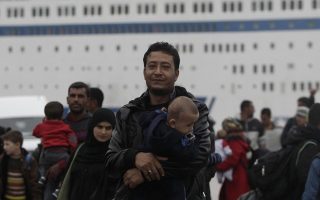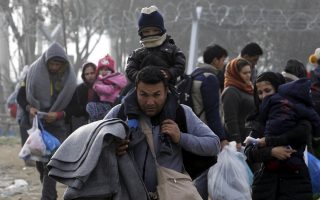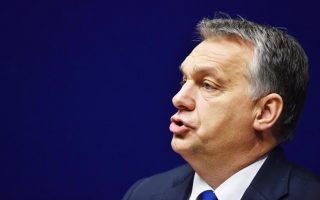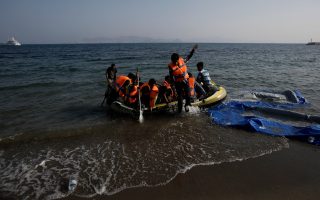Europe’s refugee dilemma eclipses Greece crisis, Austria says
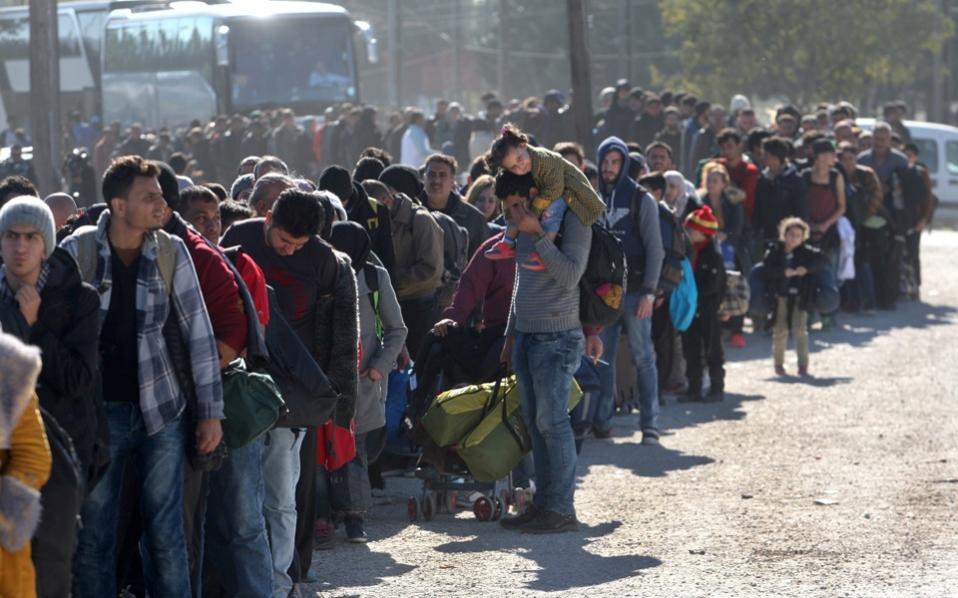
The European Union’s refugee emergency is a bigger threat than Greece, Austria’s finance minister said, calling for the bloc’s members to confront the issue with the same veracity as when they tackled the economic crisis.
“This problem is a bigger problem than Greece, and it’s a problem that will take much longer to solve,” Austrian Finance Minister Hans Joerg Schelling said Tuesday at a conference sponsored by Euromoney in Vienna. “For example on Greece, we had 21 meetings in one year to solve the problems. I would be happy if the interior ministers would have 21 meetings on the European level to solve the problem of the refugees.”
Some EU governments are hardening their stance against accepting migrants following last year’s arrival of more than a million people, mainly from the Middle East. While German Chancellor Angela Merkel is struggling to quell a revolt in her ruling party against her policy of keeping Germany open, Austrian Foreign Minister Sebastian Kurz said Monday his country must set a ceiling on the number of people it can accept. Fewer refugees would arrive if Germany, Sweden and his country closed their borders, he told ZDF television in an interview.
Merkel is seeking a deal within the bloc to resettle asylum seekers and help Turkey care for more than 2 million refugees from the conflict in neighboring Syria. Members in the bloc’s ex-communist east including Poland, Hungary, Slovakia and the Czech Republic have rejected a deal establishing quotas on how many migrants they are obliged to accept. Hungary and Slovenia have also built fences to partially close off their borders from migrants traveling via Turkey through Greece and the countries of former Yugoslavia to richer EU states to the north.
The uncoordinated approach is threatening to trigger a “domino effect” of border closings and may provoke “bilateral misunderstandings and possibly more serious tensions” among EU countries, Slovenian Prime Minister Miro Cerar said in a letter to the bloc’s executive commission on Monday. He urged EU members to step up assistance to Greece, the main migrant entry point from Turkey and said that the Former Yugoslav Republic of Macedonia (FYROM), Greece’s non-EU northern neighbor, needed help to become a “second line of defense.” Slovenia will have to turn refugees away as northern EU members turn toward more restrictive policies, he told German newspaper Die Welt on Tuesday.
Wolfgang Schaeuble, Merkel’s finance minister, warned last week that the Schengen free-movement area is on the verge of collapse as EU countries quarrel over how to cope with record arrivals. The EU says Europeans make over 1.25 billion journeys every year within the Schengen zone, which comprises 26 countries from the Barents Sea to the eastern Mediterranean, including some such as Iceland and Norway that aren’t part of the EU.
Germany must prepare for the fact that “we won’t get around border closures” to keep refugees out, Transport Minister Alexander Dobrindt said in Muenchner Merkur newspaper on Monday. The German government should prepare a “plan B” because the number of refugees that Germany can take in has been reached, and Merkel “must send a signal to the world that not everyone can come to Germany who is in search of a better life,” he said.
[Bloomberg]
